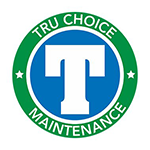Indoor Air Quality in Atlanta, GA
Air pollution isn’t just a problem that occurs near industrial plants or areas prone to wildfires. Airborne pollutants can also build up indoors, leading to serious problems with both residents’ health and their home HVAC systems’ efficiency. The good news is, most HVAC companies offer indoor air quality services that can help.
What Is Indoor Air Quality (IAQ)?
IAQ refers to the presence or absence of environmental pollutants inside homes, offices, and commercial environments. It can also be defined more broadly as the ability of indoor air to provide a safe and comfortable environment for the home’s residents and guests. Factors such as temperature, humidity, and ventilation all play important roles in supporting good IAQ, but the most essential aspect of ensuring residents’ health is the removal or deactivation of airborne contaminants.
Common Airborne Contaminants
Building contractors and remodelers devote a lot of time and materials to sealing homes up against the elements. Changes in how contractors seal homes have led to dramatic improvements in heating and cooling system efficiency, but the reduction in unwanted airflow has also created a perfect environment for harboring airborne contaminants such as:
-
- Dust
-
- Pollen
-
- Mold
-
- Mildew
-
- Pet dander
-
- Chemicals
-
- And other pollutants
Even building materials and residential cleaning products often contain potentially dangerous volatile organic compounds (VOCs) and other contaminants that can negatively impact IAQ. If there are household pets involved or any of the residents smoke indoors, that can make matters even worse. No matter how assiduous homemakers are about regular cleaning, there’s no way to eliminate all those airborne particulates by dusting and vacuuming, alone.
Reasons to Schedule an IAQ Assessment
Poor IAQ can directly affect the health and comfort of a home’s residents and guests. In some cases, it’s obvious that the air quality is poor because the airborne contaminants cause unpleasant odors. Most of the time, poor IAQ goes unnoticed until one or more of the building’s occupants start to experience worrying health symptoms.
Indoor air pollution can cause a range of symptoms depending on what kinds of contaminants are present in the home. People with allergies, asthma, or immune conditions are most prone to the worrying health impacts of poor IAQ. They often experience new or worsening flu-like symptoms, respiratory issues, headaches, and fatigue. Even if no one is noticing acute symptoms, poor IAQ can also raise residents’ risks of developing cancer, heart disease, and many other long-term health complications.
Because poor air quality often goes unnoticed until it is already taking a devastating toll on residents’ health, it’s important to schedule routine IAQ assessments. Identifying and resolving air quality issues won’t just reduce residents’ chances of developing health problems, either. It will also help the home’s HVAC system operate more efficiently, cutting back on both energy bills and the need for Air Conditioning service.
Options for Improving IAQ
The same companies that offer IAQ assessments can also install specialized equipment to improve the air quality in the home. After the assessment, the technician will create a custom recommendation based on the problems present in the client’s home. The plan will involve one or more of the following four systems.
1. Improved Air Filtration
Central air systems already have basic filters built into their heating and cooling units. However, the stock filters aren’t always sufficient. If the home’s IAQ is poor or one or more residents struggle with underlying respiratory or immune conditions, it may be time to consider upgrading. Air quality and Cooling Services can install:
-
- Inline HEPA filters that remove 99.97% of contaminants
-
- Media air cleaners that are up to 40 times more efficient than conventional filters
-
- Electronic air cleaners that use washable, electrically charged filters
2. UV Lights
Some wavelengths of ultraviolet (UV) light is naturally germicidal, meaning it can kill or deactivate many microorganisms. Germicidal UV lights work quickly and efficiently, but they need to be used in conjunction with other systems for maximum efficacy since they don’t filter out particles.
3. Humidity Control
High humidity can cause problems with mold and mildew. Low humidity can exacerbate allergy and asthma symptoms and increase the spread of respiratory diseases. Since humidity levels vary substantially depending on external factors, the best solution is to install whole-home humidity control systems.
4. Improved Ventilation
When home builders and remodelers started to get serious about heat conservation, some rushed to seal every nook and cranny of the home without giving proper attention to ventilation. Modern builders rarely make the same mistake, and improving the ventilation systems in energy retrofitted homes can improve IAQ.
Worried About Indoor Pollution?
Modern homeowners have good reason to be worried about their indoor air quality. The first step toward resolving IAQ issues is to schedule an air quality assessment with Tru Choice Maintenance. Browse the site to learn more about their IAQ services or call (404) 732-3482 to schedule an assessment.
